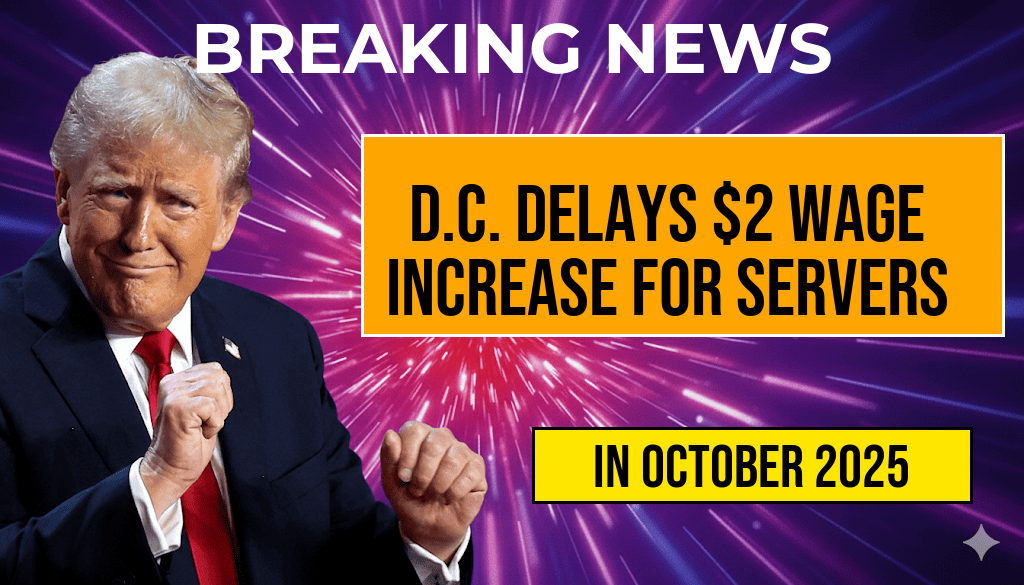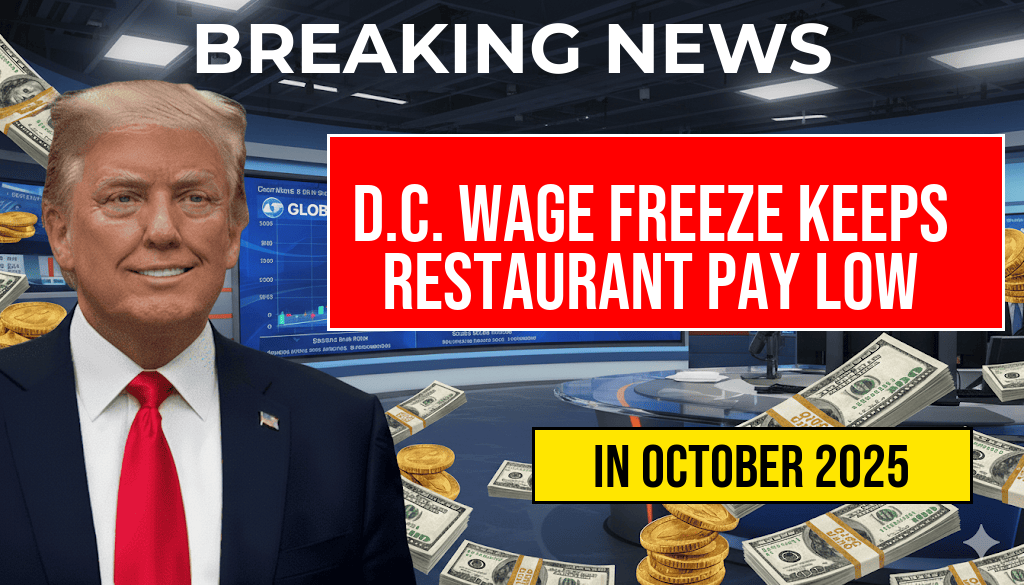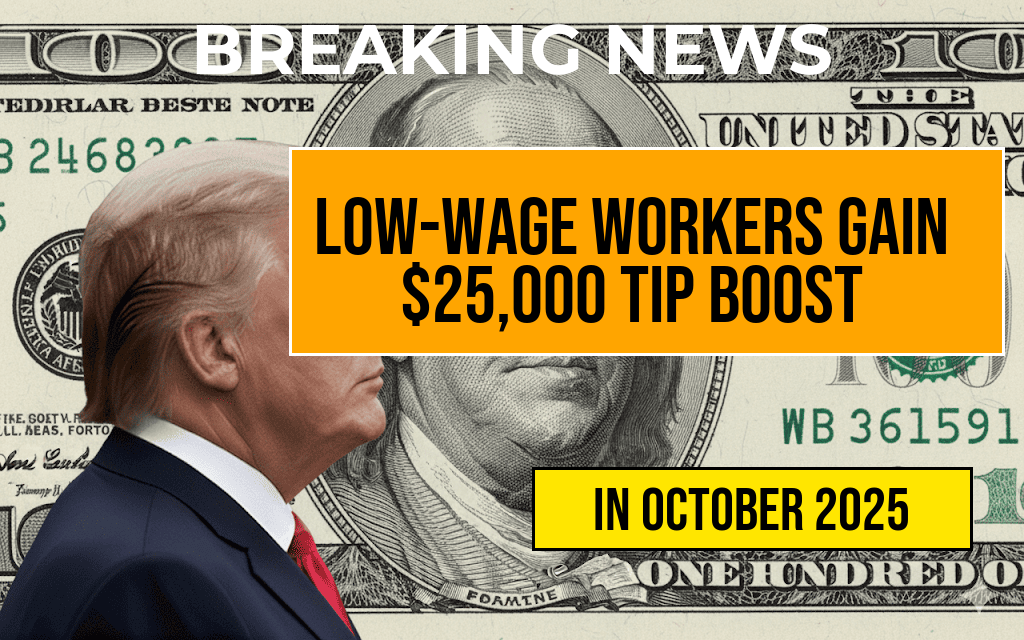The District of Columbia’s proposal to raise the tipped wage has encountered delays, putting the financial future of local servers in jeopardy. Originally scheduled for implementation, the new wage increase would have added significant earnings potential for employees in the service industry. Instead, the postponed plan could cost these workers approximately $4,160 annually compared to what the original proposal promised. This decision, affecting many who depend on tips as a substantial part of their income, has sparked considerable debate among stakeholders, including restaurant owners, labor advocates, and the servers themselves.
Background of the Tipped Wage Increase
The tipped wage in Washington, D.C., is currently set at $5.35 per hour, significantly lower than the standard minimum wage of $16.10. The proposed increase was part of a broader effort to ensure more equitable pay for service workers, many of whom face financial instability due to reliance on tips. Advocates argue that the old system places an undue burden on employees, particularly in a city with a high cost of living.
Details of the Proposed Increase
- Original Proposal: The plan aimed to gradually raise the tipped wage over several years, eventually reaching the standard minimum wage.
- Projected Annual Earnings: Under the original proposal, servers could have seen their annual earnings increase by an estimated $4,160.
- Implementation Timeline: The new wage structure was set to begin this year but has been postponed pending further review.
Implications for Servers and the Service Industry
The delay in the wage increase has raised concerns among servers who depend heavily on tips to meet their living expenses. Many workers in the industry argue that the current wage structure is outdated and fails to reflect the realities of modern life. With rising costs of housing and other essential needs, the lack of a timely wage increase could exacerbate financial hardships faced by these workers.
Responses from Stakeholders
Reactions to the delay have been mixed. Labor advocates are expressing disappointment, emphasizing the need for immediate action to support workers. Conversely, some restaurant owners argue that a rapid increase in wages could lead to higher prices for consumers and potential job losses in the industry.
Economic Context
Washington, D.C., has one of the highest costs of living in the United States, making fair wages crucial for the well-being of its residents. According to a report from the U.S. Bureau of Labor Statistics, the disparity between tipped wages and living costs poses a substantial challenge for many servers. The proposed increase was seen as a necessary step to bridge this gap.
Potential Future Developments
As discussions continue around the future of the tipped wage, various stakeholders are advocating for a compromise that could lead to a fair resolution. Some propose a phased increase that allows restaurant owners to adjust without significant disruption. Advocacy groups are also calling for a transparent dialogue between workers and employers to ensure that all voices are heard in determining the future of tipped wages in the city.
Conclusion: The Road Ahead
The delay in the tipped wage increase raises critical questions about economic equity and the future of the service industry in Washington, D.C. As the city navigates these challenges, the impact on servers will remain a focal point of discussion. With the stakes high for many who depend on tips, the urgency for a resolution grows more pressing with each passing day.
Frequently Asked Questions
What is the proposed wage increase for tipped workers in D.C.?
The proposed wage increase aimed to raise the tipped wage to $2, which would significantly impact the earnings of servers and other tipped employees.
Why was the wage increase delayed?
The delay in the $2 tipped wage increase was due to ongoing discussions and concerns from various stakeholders about the economic implications and potential impact on the hospitality industry.
How much could servers lose annually due to the delay?
Servers may potentially lose up to $4,160 annually compared to what they would have earned under the original proposal for the tipped wage increase.
What are the arguments for and against the wage increase?
Proponents argue that a higher tipped wage would provide better financial stability for workers, while opponents express concerns about the impact on businesses and the potential for job loss in the hospitality sector.
When might the wage increase be reconsidered?
While no specific date has been set, the wage increase could be revisited in future legislative sessions, depending on the outcomes of ongoing discussions and economic evaluations.






